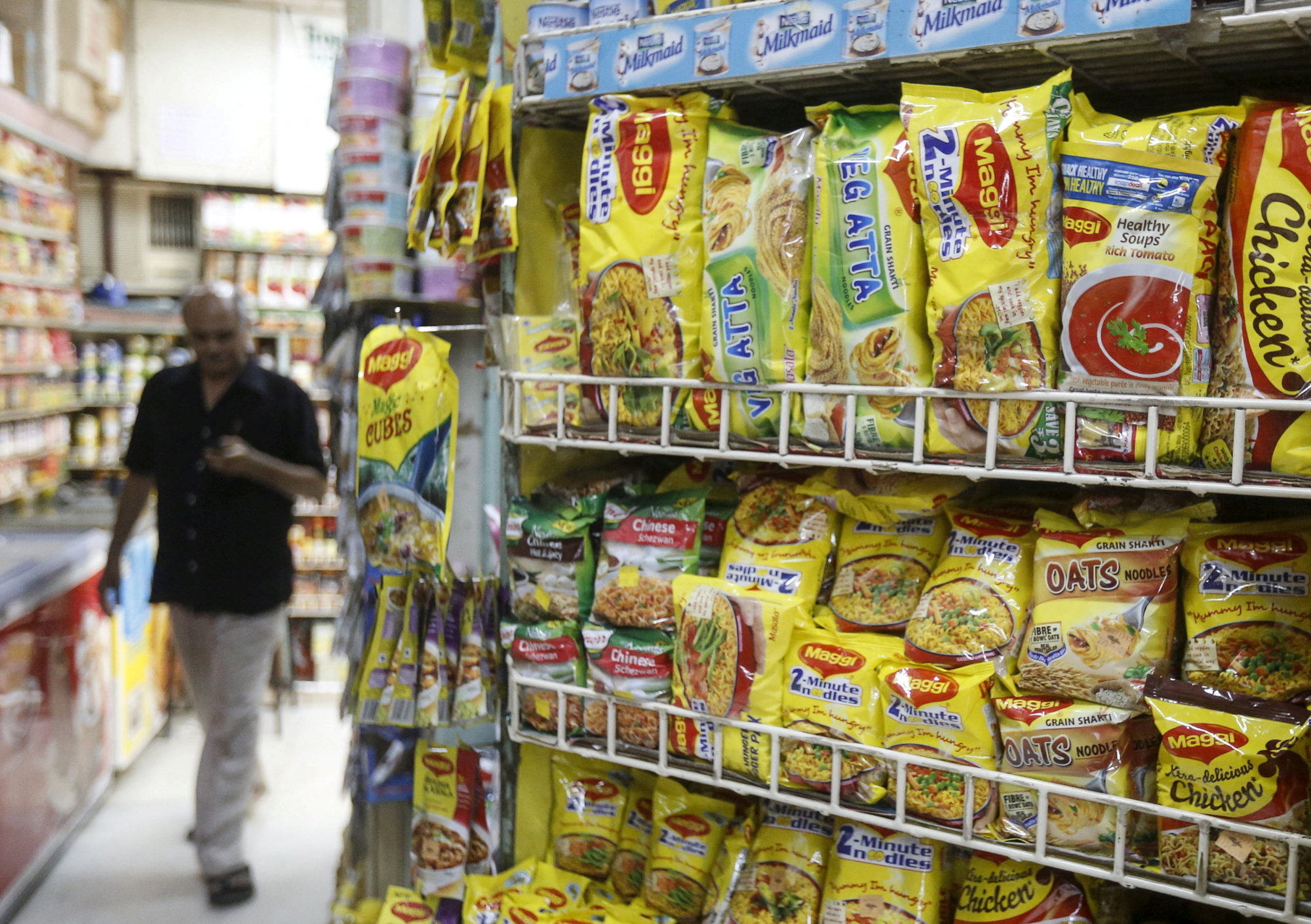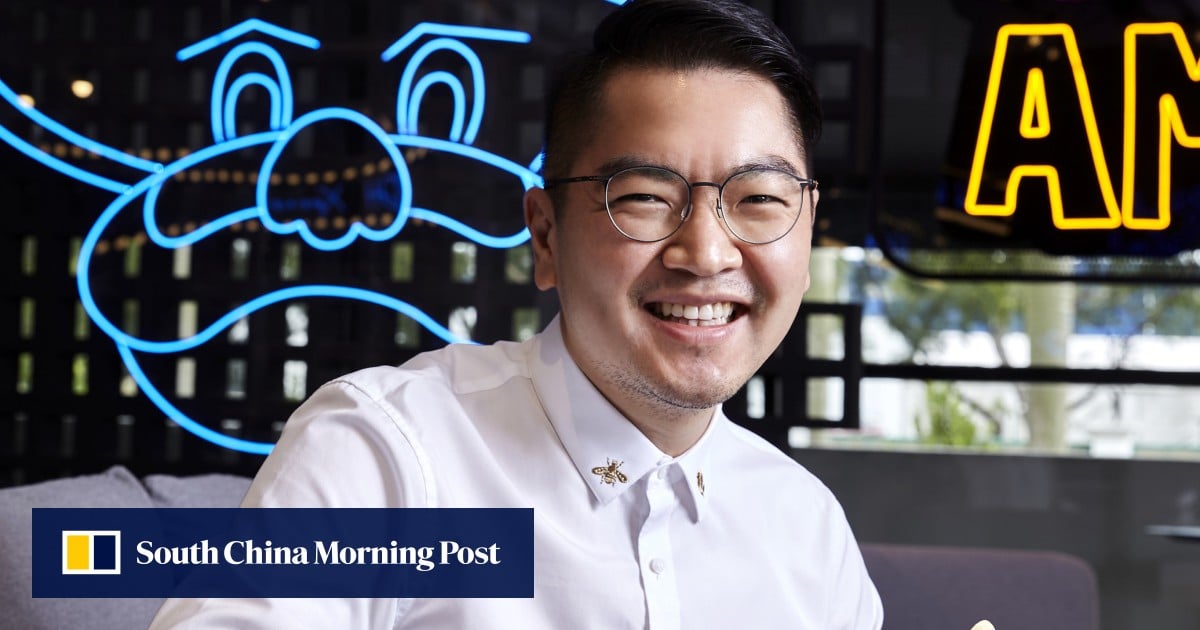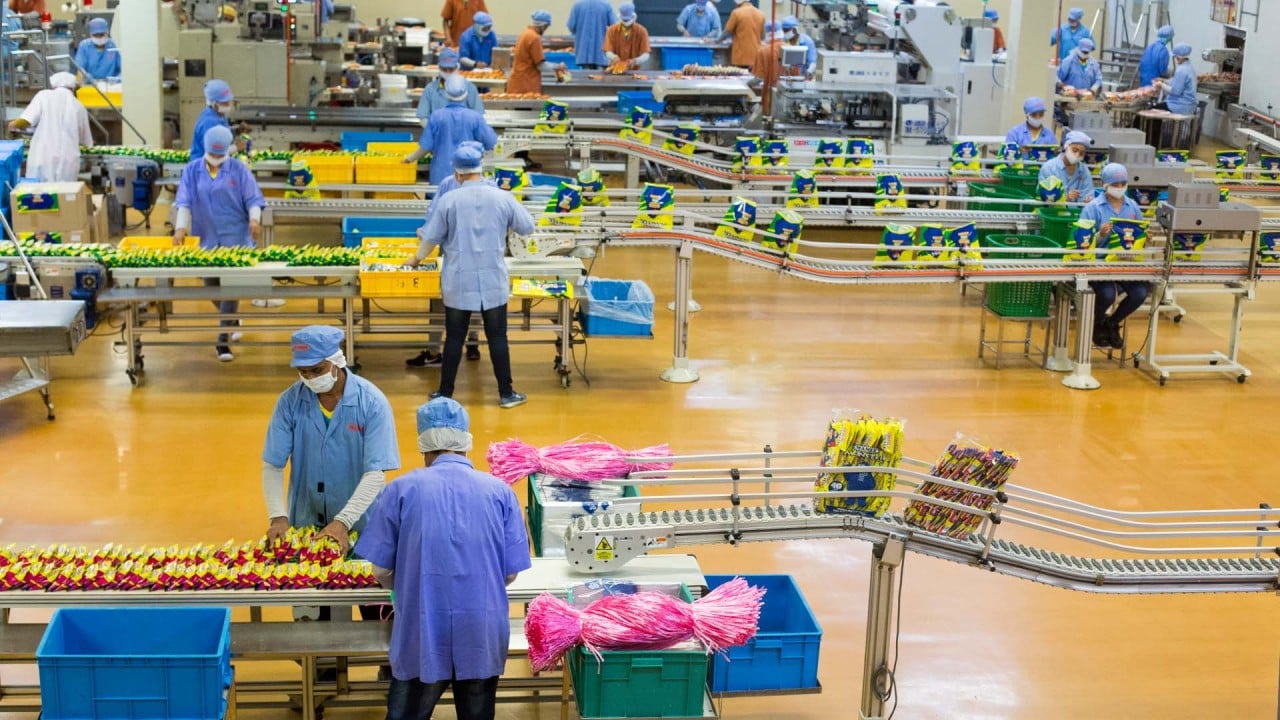The elder Pang first introduced Malaysia to the curly savoury snack in 1974, after noticing rubber tappers eating the uncooked instant noodles that his company had been making up until that point.
His son Pang Tee Chew, Pierre’s father, continued the family legacy by adding more snacks to the group’s collection over the years including Mister Potato crisps, Double Decker prawn crackers and Corntoz corn snacks.
Tributes flow in for late Malaysian founder of beloved Mamee snack
Tributes flow in for late Malaysian founder of beloved Mamee snack
Pierre Pang, who was educated at Wharton business school and Harvard University in the US, became group chief executive officer in 2022, having joined the business in 2009.
To say he is energetic is an understatement. Speaking to This Week in Asia in a wide-ranging interview, Pang espoused a determination to steer the company successfully towards its 100-year anniversary. It is now 53 years old.
“There isn’t a mandate [for new generations], so to speak. It’s [just] the voice of the second [and first] generations saying “don’t mess this up”,” he said.
“Don’t fulfil the third-generation prophecy … [in which] the Chinese save for generations … the first generation builds a business, the second grows it and the third one crashes it … That’s what keeps us up at night.”

Pang plans to ramp up revenue and get rid of some product lines, including its Nutrigen yogurt, saying the company does not have to “do too many things” to do well.
He wants to transform the stereotyped view of Mamee as a “Chinaman company” that only wants to make profits and refuses to invest in technology, brands or people.
The Pangs have also decided to do away with calling themselves “a family business” but a “generational business”.
“You are born into a family not by choice, and therefore you will have the same mindset that you should not be removed as well,” he said.
Family-owned firms more profitable, innovative, Credit Suisse says
Family-owned firms more profitable, innovative, Credit Suisse says
He says using the phrase “family business” fosters the attitude among heirs that regardless of whether they perform or not, they should remain in post.
“This is the fastest way to kill the objective of carrying forward our grandfather’s legacy over multiple generations,” Pang said.
It has not always been easy for the snack giant, dealing with strong competition from Malaysian and international brands like Cintan and Maggi from the get go. Then came a stagnation in earnings.
Pang said that about 10 years ago, Mamee realised that its growth had started to flatline.
“We started to see a lot of companies selling things not for their physical attributes, but more for their emotional attributes,” he said. “If Starbucks is just selling coffee, why is it nine times more expensive for an americano than a kopi kosong in a kopitiam?”
Then came a realisation about the company’s changing customer base, Pang said.
“We realised the reason why we’re stagnating is because we missed a huge [change]. We have started serving a new breed of consumers, and they are the millennials, and the millennials are not the same consumers as a generation or two ago,” he said.
“They want something more than what they put in their mouth. They want something that they can share on social media.”
Story of Malaysia’s famed Mamee Monster noodles – no instant hit
Story of Malaysia’s famed Mamee Monster noodles – no instant hit
Pang said marketing Mamee products as Instagrammable has worked, with business growing not just in Asia but Europe as well. However, another challenge lay ahead: the company’s carbon footprint.
Consumers do not like it when their snacks have to travel a long way around the world in shipping containers, he said, so the company is setting up new factories in Mexico to serve customers on that side of the globe – even if it means higher costs of production.
The next-generation leader also founded Mamee Ventures, which invests in food and beverage start-ups.


